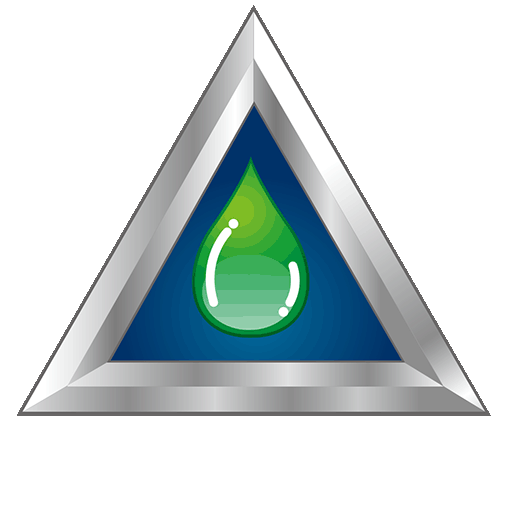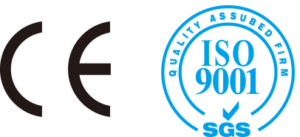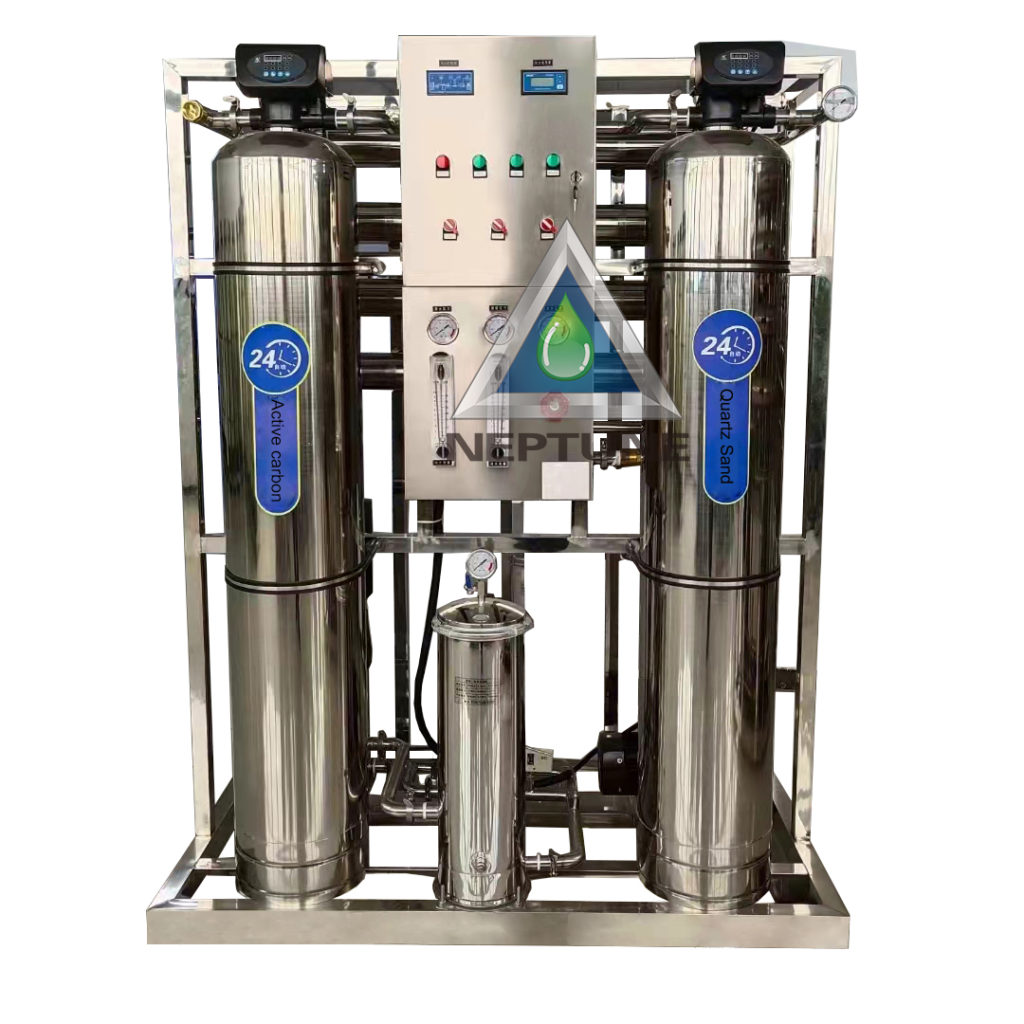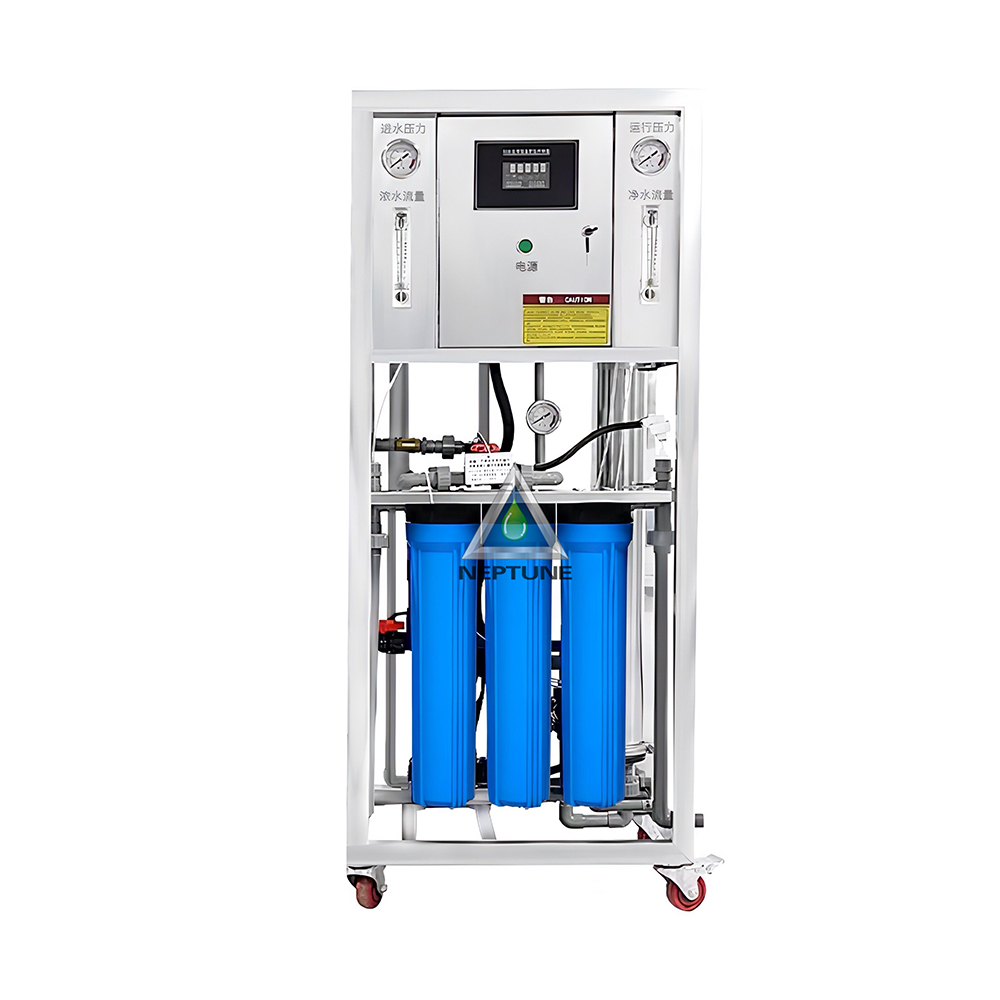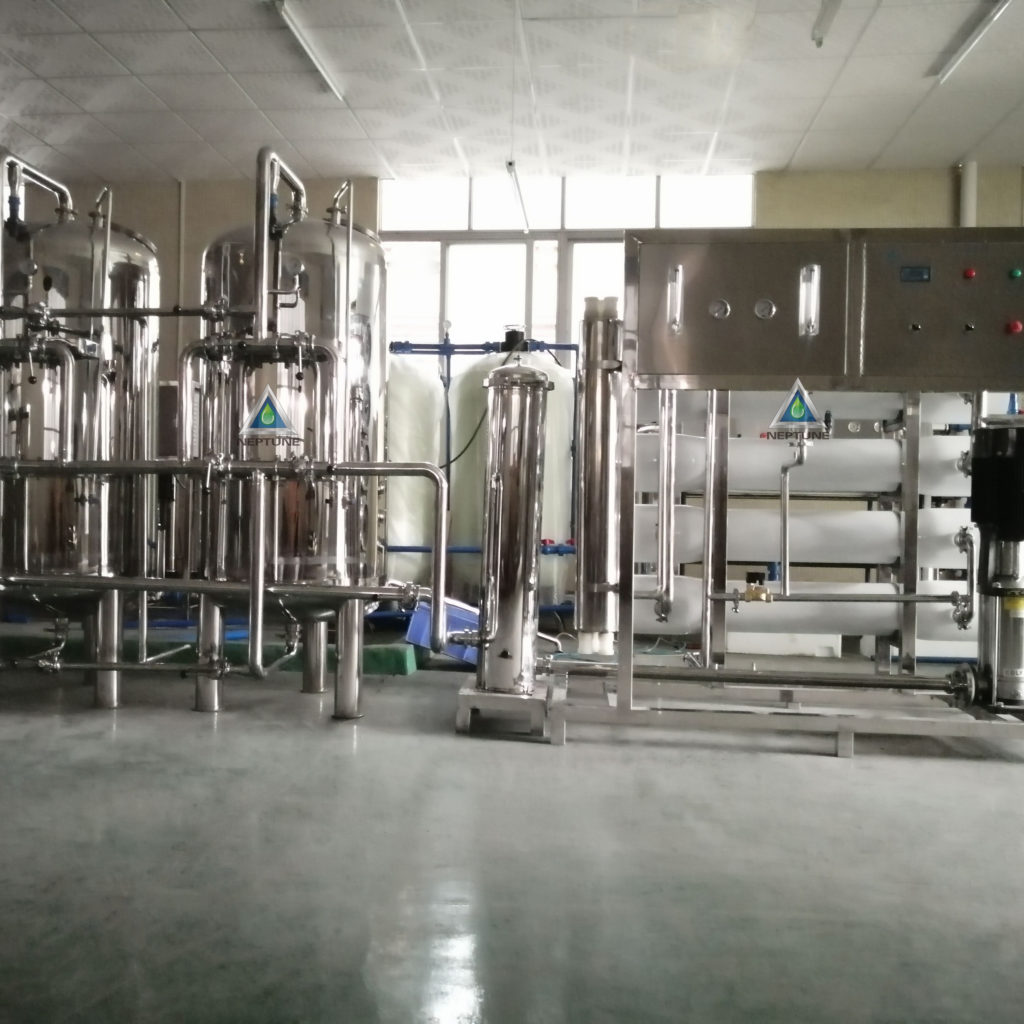An industrial reverse osmosis (RO) water purification machine is a type of water treatment system that uses a semi-permeable membrane to remove impurities and contaminants from water. RO systems work by using pressure to force water through a membrane, which separates contaminants from the water. The purified water is collected on the other side of the membrane, while the contaminants are discarded.
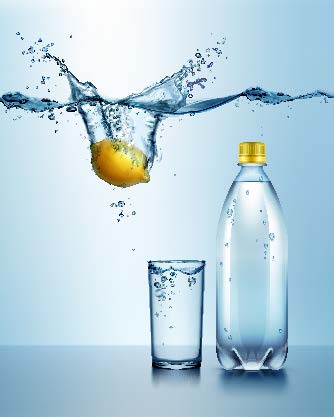
Industrial RO systems are typically used to purify water for a variety of applications, including commercial and industrial processes, irrigation, and drinking water treatment. They are often used in industries such as food and beverage processing, pharmaceuticals, power generation, and chemical manufacturing, as well as in hospitals, schools, and other public facilities.
Industrial RO systems can be designed to treat a wide range of water sources, including seawater, brackish water, surface water, and groundwater. They are highly efficient and can remove a wide range of contaminants, including dissolved solids, bacteria, viruses, and other impurities.
In general, industrial RO systems are larger and more complex than residential RO systems, and they require regular maintenance and servicing to ensure optimal performance. They are also typically more expensive to install and operate than smaller, residential RO systems.
The cost of an industrial reverse osmosis (RO) water purification machine can vary significantly depending on the size and capacity of the machine, as well as the specific features and technologies it includes. Some smaller, simpler RO systems for industrial use can cost as little as a few thousand dollars, while larger, more complex systems can cost tens of thousands of dollars or more. It is also important to consider the ongoing costs associated with operating and maintaining an RO system, such as the cost of replacement filters, membranes, and other consumables.
In general, the cost of an industrial RO system will be based on the volume of water it can treat, the contaminants it is designed to remove, and the quality of the treated water it produces. Industrial RO systems can be used for a wide range of applications, including purifying water for use in food and beverage processing, pharmaceutical manufacturing, power generation, and many other industries. If you are considering purchasing an industrial RO system, it is a good idea to research the different options available and consult with an expert in the field to determine the best system for your needs and budget.
The cost of an industrial reverse osmosis (RO) water purification machine can vary widely depending on a number of factors, including the size and complexity of the system, the type and quality of the membrane and other components, the volume of water to be treated, and the level of contaminants to be removed.
In general, industrial RO systems can range in price from a few thousand dollars for a small, basic system to hundreds of thousands of dollars for a larger, more complex system. Factors that can affect the cost of an industrial RO system include:
- The size of the system: Industrial RO systems are typically larger and more complex than residential RO systems, and they are designed to treat a higher volume of water. As a result, they tend to be more expensive.
- The quality of the components: The quality of the membrane and other components in an industrial RO system can have a significant impact on the cost. Higher-quality membranes and components may be more expensive, but they can also be more durable and efficient, which can save money over the long term.
- The type of water being treated: The cost of an industrial RO system can also depend on the type of water being treated. For example, treating seawater or brackish water may require a more expensive system due to the higher levels of contaminants and dissolved solids present in these types of water.
- The level of contaminants to be removed: Industrial RO systems are designed to remove a wide range of contaminants, including dissolved solids, bacteria, viruses, and other impurities. The cost of an industrial RO system can depend on the specific contaminants that need to be removed and the level of purification required.
Overall, the cost of an industrial RO system can vary significantly depending on the specific needs and requirements of the application. It is important to carefully consider all of these factors when determining the budget for an industrial RO system.
